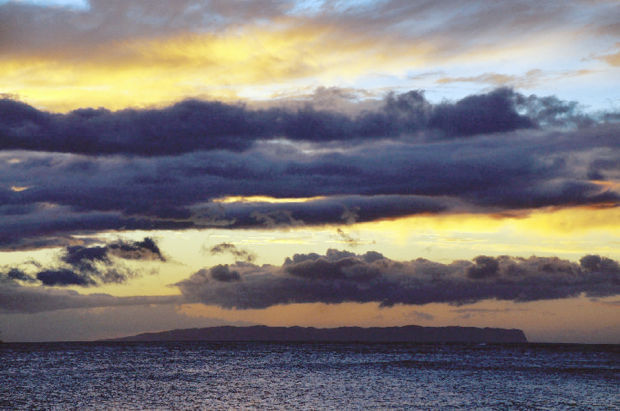LIHUE — Waves of proposals aimed at Niihau have been introduced during this year’s legislative session. The most recent one would require the state to grant “the village elder” of Niihau exclusive konohiki rights to control fishing in the island’s
LIHUE — Waves of proposals aimed at Niihau have been introduced during this year’s legislative session.
The most recent one would require the state to grant “the village elder” of Niihau exclusive konohiki rights to control fishing in the island’s nearshore waters.
While the bill makes no specific mention of who that person would be, Sen. Ron Kouchi, D-Kauai-Niihau, said it clearly spells out that the title would belong to the landowner, namely Bruce Robinson.
“The konohiki rights would have been in the deed of purchase,” Kouchi said.
Unlike its predecessor bill, Senate Bill 2125, which would prohibit fishing and the operation of recreational vessels within two miles, SB 180 is limited to one mile.
“The konohiki shall be considered in law to hold the private fishery for the equal use by the konohiki and the tenants on their respective lands, and the tenants shall be allowed to take for home consumption or commercial purposes, any aquatic life of the fisheries, subject to the restrictions imposed by the konohiki as provided in this section, or by law or rule,” states the bill, introduced by Big Island Sen. Malama Solomon.
As konohiki — “a headman of a Hawaiian land division who also controls fishing rights in adjacent waters,” according to Merrian-Webster — Robinson would have the final authority when it comes to managing the ocean around his island.
Like other measures being discussed and considered in the Legislature, Senate Bill 180 aims to deal with the issue of reportedly declining fisheries by keeping outside fishermen away from the island.
But 30-year Westside fisherman Greg Holzman said its about further privatizing the already privately-owned island.
“It’s just another angle to the same thing,” he said.
One of Holzman’s main concerns is that the konohiki would not have to be a native Hawaiian.
“Under the circumstances, the people of Niihau don’t really have a say in the matter,” he said. “Robinson is going to be the konohiki no matter what.”
Located 17.5 miles southwest of Kauai, Niihau is the seventh largest of the inhabited Hawaiian Islands and has been privately owned by the Sinclair and Robinson families since 1864.
A slew of bills related to the island have been introduced in both the House and Senate this session — proposals from establishing no-fishing zones and regulating the harvesting of opihi in nearshore coastal waters to making the island a new, independent county from Kauai.
While legislators and the Robinson family have said the resources on Niihau are being decimated by outsiders, Kauai fishermen say such claims have no basis and are nothing more than a way of gaining public sympathy to close the island’s nearshore waters.
In testimony related to one bill, Niihau owners Bruce and Leiana Robinson wrote that Niihauans survive on the bounty of the ocean and discussed their beliefs in following a strict seasonal system, allowing resources to recover, spawn and reproduce.
“Following that system, we have always had enough to sustain our village and our people,” they wrote. “However, in recent years, people who do not belong to Niihau have decimated our resources and we have had to appeal to our legislators for kokua (help).”
Under SB 180, the konohiki would be allowed to prohibit fishing for one species natural to the private fishery each year by posting at least three notices on the land or fishery.
“The specific aquatic life set apart shall be exclusive for the use of the konohiki within the specified period, and neither the tenants nor others shall take the reserved aquatic life within the private fishery,” the bill states. “The konohiki may bring legal action against any person to recover the value of the reserved aquatic life which has been taken within the private fishery.”
SB 180, if passed, would take affect immediately. It is scheduled for a public hearing at 10:05 Friday in front of the Senate Committee on Water and Land.
• Chris D’Angelo, environmental reporter, can be reached at 245-0441 or cdangelo@thegardenisland.com.


